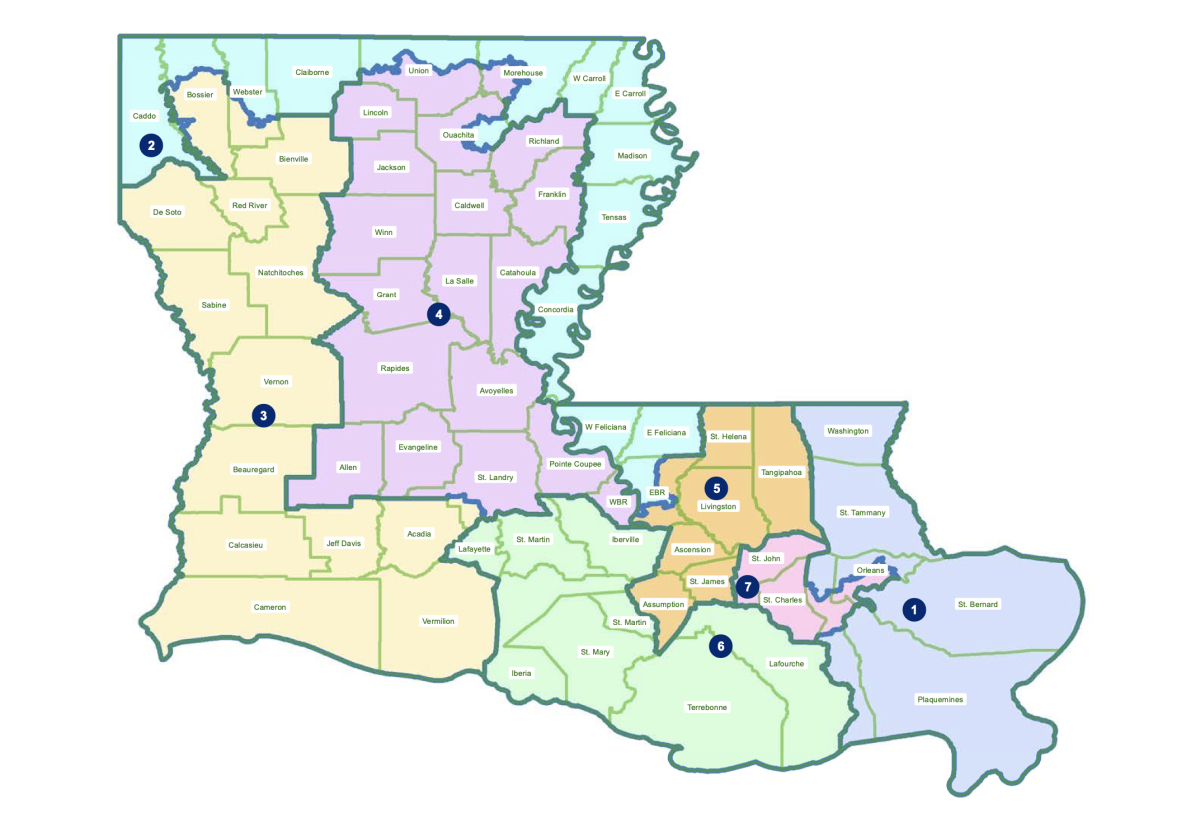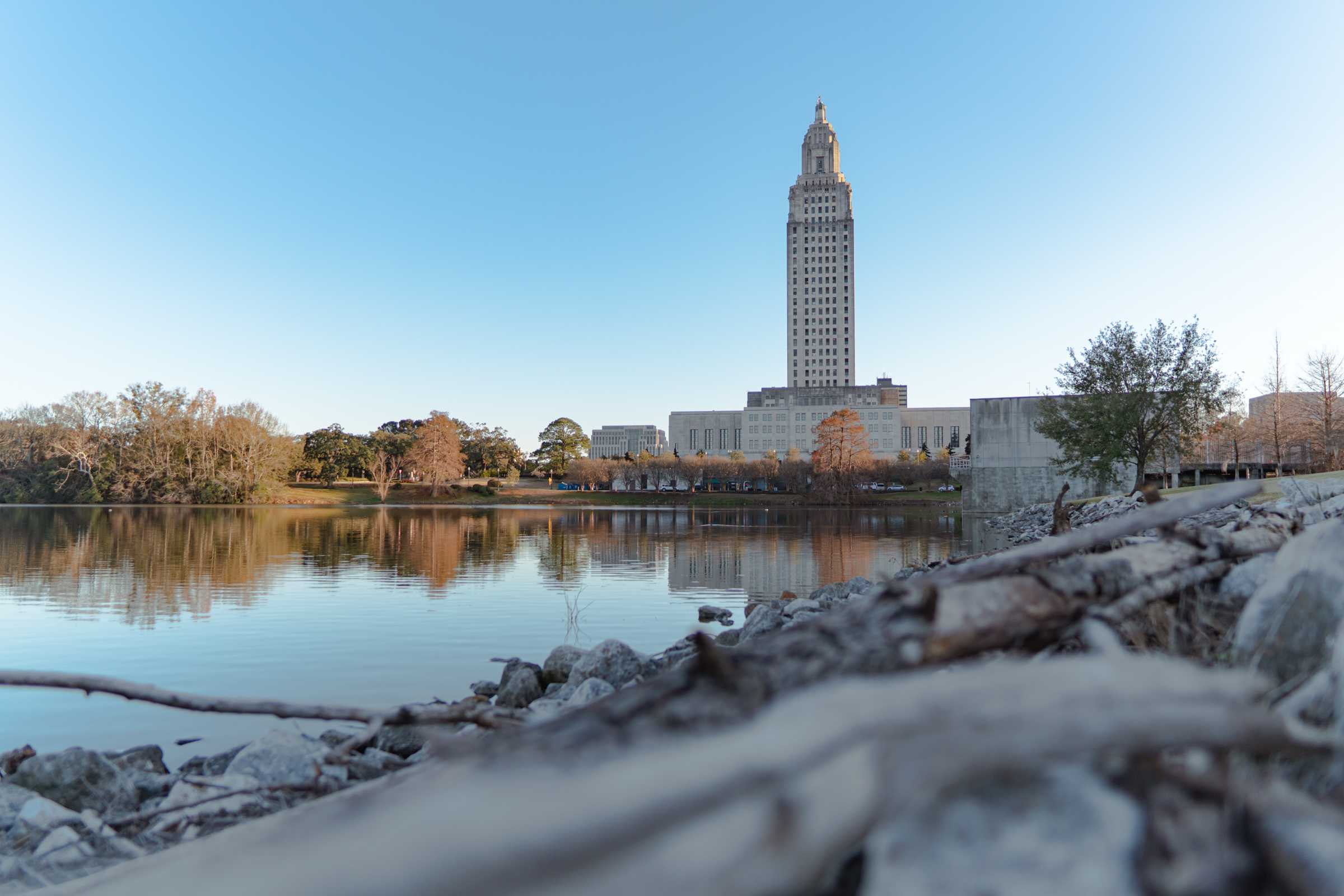A Republican-majority redistricting committee advanced a bill that would add an additional majority Black district to the seven-member Louisiana Supreme Court.
HB22, the only bill authored by a Republican that would increase minority representation in the state, was authored by Rep. Barry Ivey, R-Central.
“We have an imperative to get to that second majority minority district on the Supreme Court,” Ivey said. “We have no excuse not to.”
Ivey’s map makes major changes to the existing Supreme Court districts. The newly constructed majority Black district would curl from the Northwest corner of the state, hugging the Arkansas and Mississippi borders, coming to a stop north of Baton Rouge.
Ivey said he chose this area to draw the new district as it would create the earliest opportunity for voters to elect a Black justice. The current judge for the district, Justice Scott Crighton, will be ineligible for reelection in 2024 due to age.
The legislature is not required to redraw Supreme Court districts during the redistricting session. The lines were last redrawn in 1997, using data from the 1990 census. In the over 30 years following that census, the population has shifted dramatically in Louisiana, causing a discrepancy of over 350,000 between the most populated and the least populated district.
Courts have ruled that judicial districts aren’t bound by the one-man, one-vote principle, which requires legislative districts to have roughly equal population. Judges don’t represent constituents in the same way legislators do.
Ivey felt that more minority representation was more easily achievable in the Supreme Court, as the legislature is not required to abide by that principle. Still, his proposal balances out the population in the districts, maintaining a 5% deviation from the ideal population of 665,393.
The bill passed through the House and Governmental Affairs Committee on a bipartisan 10-7 votes, with GOP lawmakers Rep. Tanner Magee, R-Houma, and Rep. Mike Johnson, R-Pineville, voting alongside the committee’s Democrats and lone Independent.
The bill will face major challenges now that it’s out of committee. While it is currently scheduled to be debated on the floor of the House Wednesday afternoon, the agendas for both chambers have changed frequently and with little notice. Once it does receive a debate, it will face an uphill battle amongst the Republican-controlled legislature.
Supreme Court bills have to receive a final vote with a two-thirds majority in both chambers, while other maps have to receive just a simple majority.
On top of that, legislative leaders have indicated that they may not stick around long enough to pass Supreme Court maps. The session must wrap up by Sunday at 6PM, but Senate President Page Cortez told the Advocate that he expected to wrap up on Thursday.
Rep. Tanner Magee, R-Houma and the second ranking legislator in the House, said that it was likely that the legislature would not stay longer to pass Supreme Court maps. Magee added that they may be revisited in the regular session, but he wasn’t sure if the maps would get anywhere.
On the Senate side, a competing map drawn by Sen. Sharon Hewitt, R-Slidell, was approved by the Senate and sent to the House for approval. SB15 maintains a single minority district. Hewitt has opposed efforts to add a second majority district.
Sen. Cleo FIelds, one of the most vocal proponents for more majority Black districts at all levels, proposed his two Supreme Court maps of his own, which were rejected by the Senate and Governmental Affairs Committee and two floor amendments to Hewitt’s maps, which were voted down by the Senate. Several other attempts were made by Democrats to increase minority representation on the Supreme Court, all of which were defeated by Republicans.
Ivey is known to be an independent thinker among the Republican delegation. In a committee hearing last week, Ivey said “I kind of march to the beat of my own drum.”
In addition to filing the Supreme Court map, Ivey was the only Republican on the House and Governmental Affairs Committee to support a bill to create a 42% Black congressional district. Ivey indicated he would consider supporting amendments to the bills that did pass committee to create similar opportunity districts.
“Personally, I could care less about the politics. If you can care less about the politics, you can bring the perfect legislation all the time, just that purely principled legislation, and it will die all day,” Ivey said, adding that he had experience in failed bills. “Based on my experience, I try to find the balance that creates the real potential to get something like that passed.”
Lone Republican seeks to increase minority representation in Louisiana electoral maps
February 16, 2022
Proposed Louisiana Supreme Court map filed by Representative Barry Ivey, R-Central. The map, presented in House Bill 22, would create a second majority minority district in the seven-member Supreme Court.









